Certification Services
Get your Company ISO Certified
Are you ready to get audited?
Embarking on the journey to obtain your first ISO Certificate is an important step in demonstrating your commitment to quality management and compliance standards. One crucial aspect of this process is the audit appointment, which is a pivotal step in the certification process. When seeking a certification company to guide you through this journey, the first step is to get in touch and request a quote. Once you have received an offer detailing the number of audit days required according to the ISO standard, it is important to accept the offer to proceed with the process.
Following the acceptance of the offer, it is vital to arrange an audit appointment with the assistance of the coordination team. Ensuring that all necessary personnel are available and prepared for the audit days is crucial for a successful audit. Whether the audit team visits your office or conducts a remote audit, it is essential to address any highlighted issues in your management system promptly. After the audit, patience is key as the lead auditor compiles and submits the audit report to the compliance review team for approval. Upon approval of the recommendations and report, you will be notified and eventually receive your official ISO certificate, marking a significant milestone in your commitment to quality management practices.

General Contact
Get in contact in order to get a quote or schedule your certification audit. Our audit teams are available across Europe and the UK.

Audit Planning
Every audit needs to be planed and well prepared so that the audit can be conducted in an efficient manner. Where necessary our audit teams needs to arrange their travel.

Certification Standards
Find out more about the different standards for which your company can have its management system certified.
Learn more about which certification standards are particularly important for certain industries
Locations Worldwide
Our local points of contact can help you identify the best route towards your management system certification.
You can get your company’s quality management system certified according to ISO 9001:2015. Our auditors are appointed for particular industry sectors. Get in touch to find out when an audit might be possible.
Your Information security management system may be audited and certified in accordance with ISO 27001:2022. Our ISMS auditors can conduct the audits in different languages.
Certificate Information.
You can check whether a certificate is valid and for whick scope it has been issued. You can search by company name or certificate number.
You have successfully mastered your certification then you can download your certificate and our logos for use in your marketing and client information documents.
About Our ISO Certification and Quality Management Services
Get your Management System audited with AI.
Our certification body has access to one of the newest audit systems. Our auditors around the world use our AI driven audit tools to ensure a high quality of assessments.
Innovative technology increases the efficiency and effectiveness of the certification process. This reduces wasted time and helps keep cost at a reasonable level.
Why Us?

Accredited Certification Body
Stratlane is an accredited certification body and may issue certificates in over 27 countries.
Professional Auditors in 29+ countries
Our certification auditors are well trained. Their industry experience ensures an understanding of your business sector.
Accepted by Corporate & Academia
Our Certificates are trusted by Academia, Corporations and SMEs world wide.
Let's audit your management system!
In order to gain a competitive advantage, you need to apply for an audit of your management system so that a certification process may be initiated.







FAQ on ISO Certification
ISO certification, short for International Organization for Standardization certification, is a globally recognized accreditation that certifies a company's adherence to specific quality management standards. Whether it's ISO 9001 for quality management, ISO 14001 for environmental management, or ISO 27001 for information security management, achieving ISO certification demonstrates that an organization has established and implemented processes and systems that meet international benchmarks for quality, efficiency, and sustainability.
Obtaining ISO certification involves a rigorous assessment process conducted by an independent certification body. This evaluation ensures that the company's operations and processes align with the requirements set forth by the relevant ISO standard. By achieving ISO certification, organizations can improve their credibility, enhance customer trust, and gain a competitive edge in the marketplace. Furthermore, ISO certification fosters a culture of continual improvement within the organization, driving operational efficiency and effectiveness. Overall, ISO certification serves as a testament to a company's commitment to excellence and quality, making it a valuable asset for businesses looking to demonstrate their dedication to meeting and exceeding global standards.
An accredited certification body is not allowed to provide consulting services. Nevertheless, since many auditors working for certification bodies are also working in specialized ISO consulting firms, you can ask for iso consultant recommendations. If a freelance auditor is consulting your organization on how to build and maintain your management system, then that person will not be allowed to participate in the certification audit of your companies management system in the role of an auditor. He/she may accompany you and provide assistance to you when you are answering an auditors questions, but that advisor may not answer for you all the questions of the audit team.
FAQ on ISO 9001 Certification Process
ISO 9001 is a globally recognized standard for quality management systems (QMS) that helps organizations ensure they consistently meet customer requirements and enhance customer satisfaction. This standard provides a framework for companies to establish and maintain processes that meet high-quality standards in all aspects of their operations. By implementing an ISO 9001 QMS, organizations can improve efficiency, reduce waste, and enhance overall performance.
The ISO 9001 standard focuses on key principles such as customer focus, leadership, engagement of people, process approach, improvement, evidence-based decision making, and relationship management. Companies that adhere to ISO 9001 demonstrate a commitment to delivering high-quality products and services, adhering to regulatory requirements, and continuously improving their processes. Achieving ISO 9001 certification signifies to stakeholders, clients, and partners that an organization follows best practices in quality management, leading to increased credibility and trust in the market. Overall, ISO 9001 is a powerful tool for organizations looking to streamline their operations, drive continual improvement, and deliver consistent value to their customers.
The timeframe for obtaining ISO 9001 certification can vary depending on several factors such as the size and complexity of the organization, the level of existing quality management systems in place, and the resources dedicated to the certification process. On average, it takes most organizations between 6 to 12 months to complete all the necessary steps to obtain ISO 9001 certification.
The first step typically involves conducting a gap analysis to identify areas that need improvement to meet the ISO 9001 requirements. This is followed by developing and implementing a quality management system that aligns with the ISO 9001 standard. Training staff on the new processes and conducting internal audits to ensure compliance are also important steps in the certification process. Finally, an external certification body will conduct a thorough audit of the organization's quality management system before issuing the ISO 9001 certification.
While the certification process may seem daunting, it is a valuable investment for organizations looking to enhance their quality management practices, improve customer satisfaction, and gain a competitive edge in the market. With dedication, proper planning, and commitment to continuous improvement, organizations can successfully achieve ISO 9001 certification within a reasonable timeframe.
Obtaining ISO 9001 certification is a significant accomplishment for any organization seeking to demonstrate its commitment to quality management and continuous improvement. The process of achieving ISO 9001 certification involves following a set of standard requirements outlined by the International Organization for Standardization (ISO). The journey typically begins with a thorough review and understanding of the ISO 9001 standard requirements, which encompass quality management principles such as customer focus, leadership, engagement of people, process approach, improvement, evidence-based decision making, and relationship management.
Once a company has a solid grasp of the ISO 9001 requirements, the next step is to implement a quality management system (QMS) that aligns with those standards. This involves documenting processes, procedures, and work instructions to ensure consistency, efficiency, and traceability within the organization. Training employees on the QMS and fostering a culture of quality and continuous improvement are also key components of obtaining ISO 9001 certification. Following implementation, organizations undergo an internal audit to assess the effectiveness of the QMS and identify areas for improvement.
After successfully completing the internal audit, companies then engage a third-party certification body to conduct an external audit to verify compliance with ISO 9001 requirements. If the organization meets the criteria, it is awarded ISO 9001 certification, demonstrating to customers, partners, and stakeholders that it has met international standards for quality management. Continuous monitoring, evaluation, and improvement are essential post-certification to ensure ongoing compliance with ISO 9001 and drive organizational excellence.
Obtaining ISO 9001 certification in the UK is a significant achievement for any organization looking to demonstrate its commitment to quality management practices. To begin the process, the first step is typically to conduct a gap analysis to identify areas where the company's current processes align with ISO 9001 requirements and where improvements are needed. This evaluation will help establish a roadmap for implementing the necessary changes to meet certification standards.
Once the gaps have been identified, the next step is to establish a quality management system (QMS) that complies with ISO 9001 requirements. This involves documenting processes, procedures, and policies, as well as ensuring that adequate resources are in place to support the implementation of the QMS. Training employees on the new processes and fostering a culture of quality within the organization will also be crucial to successful implementation.
After the QMS has been implemented, the organization will need to undergo an audit by a certification body to assess its compliance with ISO 9001 standards. The audit will involve reviewing documentation, interviewing employees, and observing processes to ensure that the QMS is effectively implemented and maintained. Once the organization successfully passes the audit, it will receive ISO 9001 certification, demonstrating to customers and stakeholders that it meets internationally recognized standards for quality management.
An ISO 9001 certified company is one that has met the requirements set by the International Organization for Standardization (ISO) for quality management systems. This certification demonstrates that the company has implemented a framework to consistently meet customer expectations and deliver high-quality products or services. To achieve ISO 9001 certification, a company must undergo a thorough evaluation of its quality management system by an accredited certification body.
The benefits of being an ISO 9001 certified company are numerous. It helps boost customer confidence as it signifies the company's commitment to quality and customer satisfaction. It also enhances credibility and trust among stakeholders, such as clients, partners, and regulators. By implementing the principles of ISO 9001, companies can streamline their processes, improve operational efficiency, and reduce waste and errors. Overall, ISO 9001 certification can enhance the reputation and competitiveness of a company in the marketplace while driving continual improvement and growth.
FAQ on ISO 27001 Certification Process
Achieving ISO 27001 certification is a critical step for organizations seeking to demonstrate their commitment to information security management. The process of obtaining this certification involves several key steps that must be carefully followed. Firstly, the organization needs to conduct a gap analysis to identify any areas where their current practices do not align with the requirements of the ISO 27001 standard. This involves assessing existing security controls, policies, and procedures to determine what changes need to be made.
Once the gaps have been identified, it is important to develop an information security management system (ISMS) that meets the requirements of ISO 27001. This involves establishing policies and procedures to manage risks, protect sensitive information, and ensure compliance with the standard. Organizations must then implement the ISMS and conduct internal audits to ensure that it is functioning effectively.
After the ISMS has been implemented and audited internally, the organization will need to undergo a formal certification audit by an accredited certification body. During this audit, the certification body will assess whether the organization's ISMS meets the requirements of ISO 27001. If the audit is successful, the organization will be awarded ISO 27001 certification, demonstrating to clients, partners, and stakeholders that they have implemented robust information security practices. Continuous improvement and monitoring of the ISMS are essential to maintain ISO 27001 certification over time.
ISO 27001 is a crucial international standard that outlines the requirements for an effective information security management system (ISMS). Implementing ISO 27001 brings a multitude of benefits to organizations of all sizes and industries. First and foremost, ISO 27001 helps companies protect their sensitive information and data assets from security breaches and cyber threats. By establishing a robust ISMS based on ISO 27001 principles, organizations can identify potential risks, assess vulnerabilities, and implement control measures to mitigate security risks.
Moreover, ISO 27001 compliance demonstrates to stakeholders, customers, and regulatory bodies that an organization takes information security seriously. This can enhance the organization's reputation, build trust with clients, and open up new business opportunities. Additionally, ISO 27001 certification can be a requirement for bidding on contracts, especially in industries where data security is a top priority, such as finance, healthcare, and government sectors.
In conclusion, ISO 27001 is important because it provides a systematic framework for managing and protecting information assets, strengthens cybersecurity defenses, and helps organizations stay ahead of evolving security threats. By adopting ISO 27001 standards, companies can enhance their overall security posture, increase operational resilience, and establish a culture of continuous improvement in information security practices.
ISO 27001 is a globally recognized standard that sets out the requirements for establishing, implementing, maintaining, and continually improving an information security management system (ISMS). It is specifically designed to help organizations manage their information security risks effectively and protect their sensitive data from cyber threats. By implementing ISO 27001, organizations can demonstrate their commitment to ensuring the confidentiality, integrity, and availability of their information assets.
One of the key benefits of adhering to the ISO 27001 standard is that it provides a systematic approach to identifying, assessing, and mitigating information security risks. By following the guidelines outlined in the standard, organizations can develop policies and procedures to protect their data, systems, and networks from malicious attacks, unauthorized access, and other security breaches. Additionally, ISO 27001 helps organizations comply with legal and regulatory requirements related to information security, as well as build trust and confidence among their customers, partners, and stakeholders.
Overall, ISO 27001 is a valuable tool for organizations looking to enhance their cyber security posture and safeguard their information assets. By implementing the standard, organizations can establish a robust framework for managing information security risks, improve their resilience to cyber threats, and demonstrate their commitment to protecting sensitive data.
ISO 27001 is an internationally recognized standard for information security management systems (ISMS). It outlines best practices and requirements for organizations to establish, implement, maintain, and continually improve an effective ISMS. The primary goal of ISO 27001 is to help organizations protect their sensitive information assets, such as customer data, intellectual property, financial information, and employee records, from security breaches, unauthorized access, and cyber threats.
Compliance with ISO 27001 demonstrates that an organization has implemented a systematic approach to managing information security risks. This includes conducting risk assessments, establishing policies and procedures, implementing security controls, and regularly monitoring and reviewing the ISMS. By achieving ISO 27001 certification, organizations can enhance their credibility and trustworthiness with customers, partners, and stakeholders, as it provides assurance that information security is taken seriously and managed effectively. Ultimately, ISO 27001 helps organizations build a robust cybersecurity posture, reduce the likelihood of security incidents, and protect their valuable information assets.
ISO 27001 certification is a crucial credential that demonstrates a company's commitment to information security management. Any organization that stores, processes, or transmits sensitive information needs ISO 27001 certification to safeguard against data breaches, cyber attacks, and information security risks. Industries such as finance, healthcare, legal, government, and IT services deal with sensitive data on a daily basis and need to comply with strict regulations to protect this information. ISO 27001 certification ensures that organizations have implemented robust security measures, policies, and procedures to effectively manage risks and maintain the confidentiality, integrity, and availability of their data.
Moreover, in today's digital landscape where cyber threats are becoming increasingly sophisticated, even small and medium-sized enterprises (SMEs) can benefit from ISO 27001 certification. SMEs often lack the resources and expertise to establish comprehensive information security practices, making them more vulnerable to cyber attacks. By obtaining ISO 27001 certification, SMEs can enhance their credibility, build trust with customers, and demonstrate a strong commitment to safeguarding sensitive information. Ultimately, ISO 27001 certification is essential for any organization that values information security and seeks to maintain a competitive edge in the marketplace by fostering trust and confidence among stakeholders.





